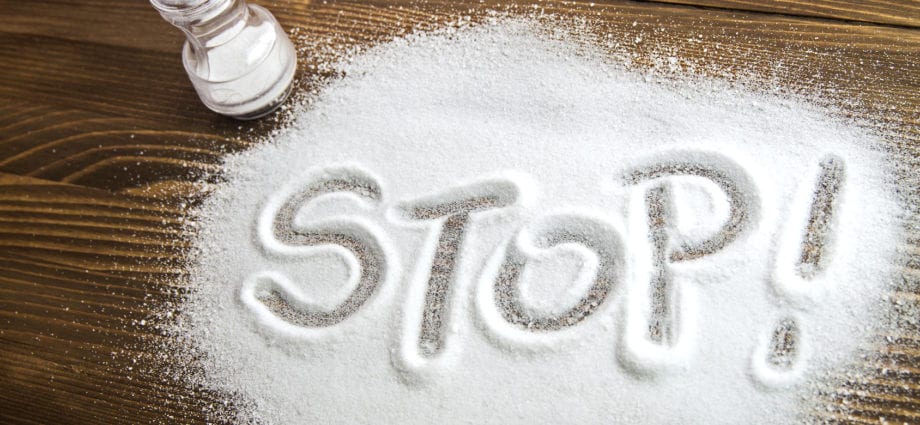Contents
There is virtually no food that would be clearly harmful or useful. The problems start when the deficit or surplus, it applies to salt. Its high consumption may lead to cardiovascular disease, but a lack of salt in the diet is not always desirable.
Is salt harmfull?
Salt is necessary for human body. It consists of sodium and chlorine ions, which are important for the functioning of the body elements.
Sodium supports metabolic processes at the intracellular and interstitial levels, helps to keep the fluid in the cells and tissues of the body.
Chlorine is also involved in the regulation of circulation of fluid in cells and is necessary for the synthesis of the hydrochloric acid component of gastric juice.
The excess of salt in the first place, leads to the fact that the body begins to keep liquid. This is reflected in the weight gain, but also affects the internal organs.
Especially dangerous is the overabundance of salt in the kidney and cardiovascular system. If you have them just recommended restriction of salt in the diet.
Is it possible to hurt yourself with salt-free diet?
While full refusal from salt the consequences are dire: General deterioration of health, nausea, loss of appetite, aversion to food, indigestion, on the background of decrease in the production of hydrochloric acid, muscular weakness, cramps in muscles, a drop in blood pressure.
However, in real life facing them is unlikely. The diet of modern man includes many ready products. This abundance of cheeses, different types of fish and meat, processed by Smoking or salting, vegetable and meat preserves, sausage products, bread.
All of the above has salt in its composition. Therefore, even if the person has refused for more lightly solting food, bring yourself to the present deficiency of salt will be difficult.
When it is better to refuse salt?
Reducing the amount of salt in the diet is extremely important for weight loss. “If the patient is not in any distress, this diet really helps to eliminate excess fluid from the body, that facilitates the work of the heart and kidneys. By the way, diseases of these organs are often a direct consequence of the abuse of too salty food.
Recommended by the world health organization, the intake of salt about 5 grams per day, which is equivalent to one teaspoon.
You must remember that all salt added to food is counted. If you add salt food already in the bowl, this salt is also taken into account.
What you need to know, if you limit yourself in salt?
If we are talking about the hot time of year, or hot climate, reducing the amount of salt is undesirable. During the heat the body loses a lot of salt in the sweat, and this is the case when the restriction of salt in the diet can be detected above symptoms of salt deficiency.
Under normal conditions the most simple way to reduce the amount of salt is to stop eat fast food, ready meals, cured meats, pickles, cheese and other foods containing too much salt. Go to boiled meat, vegetables and fruits – they contain sodium, and chlorine.
The body receives the minimum necessary amount of salt for activity even in this case.
How to go to a salt-free diet if you are used to eating salty food?
As with any change, it is better not to stretch, and immediately go on a salt-free diet and to suffer for some time. It will take only two weeks for taste buds to adapt to a new diet. And then the whole unsalted food will no longer seem untasty. It is possible at first to stop using salt while cooking and add a little on the plate.
Another simple technique to speed up getting used to unsalted food: use spices that enhance the taste of food.
You need to remember
Limit yourself to salt in the existing conditions – useful for a therapeutic diet is salt-free. Only two weeks to get used to the new tastes. Don’t limit yourself to salt in the heat – there is a risk of harm to health.
Learn about salt alternatives in the video below:
More about salt benefits and harms read in our big article.










